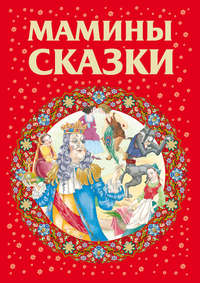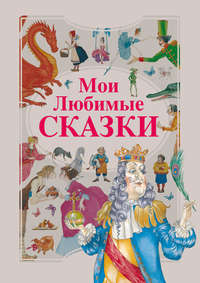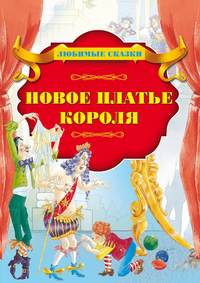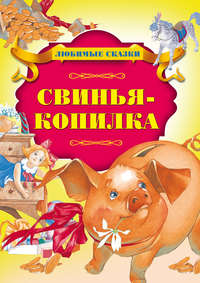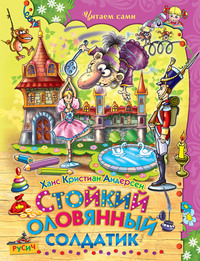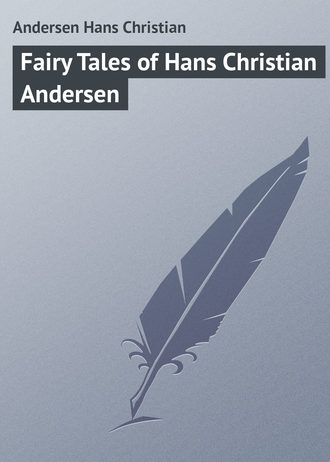 полная версия
полная версияFairy Tales of Hans Christian Andersen
"That singing is a lovely gift;" said the ladies of the court to each other; and then they took water in their mouths to make them utter the gurgling sounds of the nightingale when they spoke to any one, so that they might fancy themselves nightingales. And the footmen and chambermaids also expressed their satisfaction, which is saying a great deal, for they are very difficult to please. In fact the nightingale's visit was most successful. She was now to remain at court, to have her own cage, with liberty to go out twice a day, and once during the night. Twelve servants were appointed to attend her on these occasions, who each held her by a silken string fastened to her leg. There was certainly not much pleasure in this kind of flying.
The whole city spoke of the wonderful bird, and when two people met, one said "nightin," and the other said "gale," and they understood what was meant, for nothing else was talked of. Eleven peddlers' children were named after her, but not of them could sing a note.
One day the emperor received a large packet on which was written "The Nightingale." "Here is no doubt a new book about our celebrated bird," said the emperor. But instead of a book, it was a work of art contained in a casket, an artificial nightingale made to look like a living one, and covered all over with diamonds, rubies, and sapphires. As soon as the artificial bird was wound up, it could sing like the real one, and could move its tail up and down, which sparkled with silver and gold. Round its neck hung a piece of ribbon, on which was written "The Emperor of China's nightingale is poor compared with that of the Emperor of Japan's."
"This is very beautiful," exclaimed all who saw it, and he who had brought the artificial bird received the title of "Imperial nightingale-bringer-in-chief."
"Now they must sing together," said the court, "and what a duet it will be." But they did not get on well, for the real nightingale sang in its own natural way, but the artificial bird sang only waltzes.
"That is not a fault," said the music-master, "it is quite perfect to my taste," so then it had to sing alone, and was as successful as the real bird; besides, it was so much prettier to look at, for it sparkled like bracelets and breast-pins. Three and thirty times did it sing the same tunes without being tired; the people would gladly have heard it again, but the emperor said the living nightingale ought to sing something. But where was she? No one had noticed her when she flew out at the open window, back to her own green woods.
"What strange conduct," said the emperor, when her flight had been discovered; and all the courtiers blamed her, and said she was a very ungrateful creature.
"But we have the best bird after all," said one, and then they would have the bird sing again, although it was the thirty-fourth time they had listened to the same piece, and even then they had not learnt it, for it was rather difficult. But the music-master praised the bird in the highest degree, and even asserted that it was better than a real nightingale, not only in its dress and the beautiful diamonds, but also in its musical power. "For you must perceive, my chief lord and emperor, that with a real nightingale we can never tell what is going to be sung, but with this bird everything is settled. It can be opened and explained, so that people may understand how the waltzes are formed, and why one note follows upon another."
"This is exactly what we think," they all replied, and then the music-master received permission to exhibit the bird to the people on the following Sunday, and the emperor commanded that they should be present to hear it sing. When they heard it they were like people intoxicated; however it must have been with drinking tea, which is quite a Chinese custom. They all said "Oh!" and held up their forefingers and nodded, but a poor fisherman, who had heard the real nightingale, said, "it sounds prettily enough, and the melodies are all alike; yet there seems something wanting, I cannot exactly tell what."
And after this the real nightingale was banished from the empire, and the artificial bird placed on a silk cushion close to the emperor's bed. The presents of gold and precious stones which had been received with it were round the bird, and it was now advanced to the title of "Little Imperial Toilet Singer," and to the rank of No. 1 on the left hand; for the emperor considered the left side, on which the heart lies, as the most noble, and the heart of an emperor is in the same place as that of other people.
The music-master wrote a work, in twenty-five volumes, about the artificial bird, which was very learned and very long, and full of the most difficult Chinese words; yet all the people said they had read it, and understood it, for fear of being thought stupid and having their bodies trampled upon.
So a year passed, and the emperor, the court, and all the other Chinese knew every little turn in the artificial bird's song; and for that same reason it pleased them better. They could sing with the bird, which they often did. The street-boys sang, "Zi-zi-zi, cluck, cluck, cluck," and the emperor himself could sing it also. It was really most amusing.
One evening, when the artificial bird was singing its best, and the emperor lay in bed listening to it, something inside the bird sounded "whizz." Then a spring cracked. "Whir-r-r-r" went all the wheels, running round, and then the music stopped. The emperor immediately sprang out of bed, and called for his physician; but what could he do? Then they sent for a watchmaker; and, after a great deal of talking and examination, the bird was put into something like order; but he said that it must be used very carefully, as the barrels were worn, and it would be impossible to put in new ones without injuring the music. Now there was great sorrow, as the bird could only be allowed to play once a year; and even that was dangerous for the works inside it. Then the music-master made a little speech, full of hard words, and declared that the bird was as good as ever; and, of course no one contradicted him.
Five years passed, and then a real grief came upon the land. The Chinese really were fond of their emperor, and he now lay so ill that he was not expected to live. Already a new emperor had been chosen and the people who stood in the street asked the lord-in-waiting how the old emperor was; but he only said, "Pooh!" and shook his head.
Cold and pale lay the emperor in his royal bed; the whole court thought he was dead, and every one ran away to pay homage to his successor. The chamberlains went out to have a talk on the matter, and the ladies'-maids invited company to take coffee. Cloth had been laid down on the halls and passages, so that not a footstep should be heard, and all was silent and still. But the emperor was not yet dead, although he lay white and stiff on his gorgeous bed, with the long velvet curtains and heavy gold tassels. A window stood open, and the moon shone in upon the emperor and the artificial bird. The poor emperor, finding he could scarcely breathe with a strange weight on his chest, opened his eyes, and saw Death sitting there. He had put on the emperor's golden crown, and held in one hand his sword of state, and in the other his beautiful banner. All around the bed and peeping through the long velvet curtains, were a number of strange heads, some very ugly, and others lovely and gentle-looking. These were the emperor's good and bad deeds, which stared him in the face now Death sat at his heart.
"Do you remember this?" "Do you recollect that?" they asked one after another, thus bringing to his remembrance circumstances that made the perspiration stand on his brow.
"I know nothing about it," said the emperor. "Music! music!" he cried; "the large Chinese drum! that I may not hear what they say." But they still went on, and Death nodded like a Chinaman to all they said. "Music! music!" shouted the emperor. "You little precious golden bird, sing, pray sing! I have given you gold and costly presents; I have even hung my golden slipper round your neck. Sing! sing!" But the bird remained silent. There was no one to wind it up, and therefore it could not sing a note.
Death continued to stare at the emperor with his cold, hollow eyes, and the room was fearfully still. Suddenly there came through the open window the sound of sweet music. Outside, on the bough of a tree, sat the living nightingale. She had heard of the emperor's illness, and was therefore come to sing to him of hope and trust. And as she sung, the shadows grew paler and paler; the blood in the emperor's veins flowed more rapidly, and gave life to his weak limbs; and even Death himself listened, and said, "Go on, little nightingale, go on."
"Then will you give me the beautiful golden sword and that rich banner? and will you give me the emperor's crown?" said the bird.
So Death gave up each of these treasures for a song; and the nightingale continued her singing. She sung of the quiet churchyard, where the white roses grow, where the elder-tree wafts its perfume on the breeze, and the fresh, sweet grass is moistened by the mourners' tears. Then Death longed to go and see his garden, and floated out through the window in the form of a cold, white mist.
"Thanks, thanks, you heavenly little bird. I know you well. I banished you from my kingdom once, and yet you have charmed away the evil faces from my bed, and banished Death from my heart, with your sweet song. How can I reward you?"
"You have already rewarded me," said the nightingale. "I shall never forget that I drew tears from your eyes the first time I sang to you. These are the jewels that rejoice a singer's heart. But now sleep, and grow strong and well again. I will sing to you again."
And as she sung, the emperor fell into a sweet sleep; and how mild and refreshing that slumber was! When he awoke, strengthened and restored, the sun shone brightly through the window; but not one of his servants had returned – they all believed he was dead; only the nightingale still sat beside him, and sang.
"You must always remain with me," said the emperor. "You shall sing only when it pleases you; and I will break the artificial bird into a thousand pieces."
"No; do not do that," replied the nightingale; "the bird did very well as long as it could. Keep it here still. I cannot live in the palace, and build my nest; but let me come when I like. I will sit on a bough outside your window, in the evening, and sing to you, so that you may be happy, and have thoughts full of joy. I will sing to you of those who are happy, and those who suffer; of the good and the evil, who are hidden around you. The little singing bird flies far from you and your court to the home of the fisherman and the peasant's cot. I love your heart better than your crown; and yet something holy lingers round that also. I will come, I will sing to you; but you must promise me one thing."
"Everything," said the emperor, who, having dressed himself in his imperial robes, stood with the hand that held the heavy golden sword pressed to his heart.
"I only ask one thing," she replied; "let no one know that you have a little bird who tells you everything. It will be best to conceal it." So saying, the nightingale flew away.
The servants now came in to look after the dead emperor; when, lo! there he stood, and, to their astonishment, said, "Good morning."
THERE IS NO DOUBT ABOUT IT
"That was a terrible affair!" said a hen, and in a quarter of the town, too, where it had not taken place. "That was a terrible affair in a hen-roost. I cannot sleep alone to-night. It is a good thing that many of us sit on the roost together." And then she told a story that made the feathers on the other hens bristle up, and the cock's comb fall. There was no doubt about it.
But we will begin at the beginning, and that is to be found in a hen-roost in another part of the town. The sun was setting, and the fowls were flying on to their roost; one hen, with white feathers and short legs, used to lay her eggs according to the regulations, and was, as a hen, respectable in every way. As she was flying upon the roost, she plucked herself with her beak, and a little feather came out.
"There it goes," she said; "the more I pluck, the more beautiful do I get." She said this merrily, for she was the best of the hens, and, moreover, as had been said, very respectable. With that she went to sleep.
It was dark all around, and hen sat close to hen, but the one who sat nearest to her merry neighbour did not sleep. She had heard and yet not heard, as we are often obliged to do in this world, in order to live at peace; but she could not keep it from her neighbour on the other side any longer. "Did you hear what was said? I mention no names, but there is a hen here who intends to pluck herself in order to look well. If I were a cock, I should despise her."
Just over the fowls sat the owl, with father owl and the little owls. The family has sharp ears, and they all heard every word that their neighbour had said. They rolled their eyes, and mother owl, beating her wings, said: "Don't listen to her! But I suppose you heard what was said? I heard it with my own ears, and one has to hear a great deal before they fall off. There is one among the fowls who has so far forgotten what is becoming to a hen that she plucks out all her feathers and lets the cock see it."
"Prenez garde aux enfants!" said father owl; "children should not hear such things."
"But I must tell our neighbour owl about it; she is such an estimable owl to talk to." And with that she flew away.
"Too-whoo! Too-whoo!" they both hooted into the neighbour's dove-cot to the doves inside. "Have you heard? Have you heard? Too-whoo! There is a hen who has plucked out all her feathers for the sake of the cock; she will freeze to death, if she is not frozen already. Too-whoo!"
"Where? where?" cooed the doves.
"In the neighbour's yard. I have as good as seen it myself. It is almost unbecoming to tell the story, but there is no doubt about it."
"Believe every word of what we tell you," said the doves, and cooed down into their poultry-yard. "There is a hen – nay, some say that there are two – who have plucked out all their feathers, in order not to look like the others, and to attract the attention of the cock. It is a dangerous game, for one can easily catch cold and die from fever, and both of these are dead already."
"Wake up! wake up!" crowed the cock, and flew upon his board. Sleep was still in his eyes, but yet he crowed out: "Three hens have died of their unfortunate love for a cock. They had plucked out all their feathers. It is a horrible story: I will not keep it to myself, but let it go farther."
"Let it go farther," shrieked the bats, and the hens clucked and the cocks crowed, "Let it go farther! Let it go farther!" In this way the story travelled from poultry-yard to poultry-yard, and at last came back to the place from which it had really started.
"Five hens," it now ran, "have plucked out all their feathers to show which of them had grown leanest for love of the cock, and then they all pecked at each other till the blood ran down and they fell down dead, to the derision and shame of their family, and to the great loss of their owner."
The hen who had lost the loose little feather naturally did not recognise her own story, and being a respectable hen, said: "I despise those fowls; but there are more of that kind. Such things ought not to be concealed, and I will do my best to get the story into the papers, so that it becomes known throughout the land; the hens have richly deserved it, and their family too."
It got into the papers, it was printed; and there is no doubt about it, one little feather may easily grow into five hens.
IN THE NURSERY
Father, and mother, and brothers, and sisters, were gone to the play; only little Anna and her grandpapa were left at home.
"We'll have a play too," he said, "and it may begin immediately."
"But we have no theatre," cried little Anna, "and we have no one to act for us; my old doll cannot, for she is a fright, and my new one cannot, for she must not rumple her new clothes."
"One can always get actors if one makes use of what one has," observed grandpapa.
"Now we'll go into the theatre. Here we will put up a book, there another, and there a third, in a sloping row. Now three on the other side; so, now we have the side scenes. The old box that lies yonder may be the back stairs; and we'll lay the flooring on top of it. The stage represents a room, as every one may see. Now we want the actors. Let us see what we can find in the plaything-box. First the personages, and then we will get the play ready. One after the other; that will be capital! Here's a pipe-head, and yonder an odd glove; they will do very well for father and daughter."
"But those are only two characters," said little Anna. "Here's my brother's old waistcoat – could not that play in our piece, too?"
"It's big enough, certainly," replied grandpapa. "It shall be the lover. There's nothing in the pockets, and that's very interesting, for that's half of an unfortunate attachment. And here we have the nut-cracker's boots, with spurs to them. Row, dow, dow! how they can stamp and strut! They shall represent the unwelcome wooer, whom the lady does not like. What kind of a play will you have now? Shall it be a tragedy, or a domestic drama?"
"A domestic drama, please," said little Anna, "for the others are so fond of that. Do you know one?"
"I know a hundred," said grandpapa. "Those that are most in favor are from the French, but they are not good for little girls. In the meantime, we may take one of the prettiest, for inside they're all very much alike. Now I shake the pen! Cock-a-lorum! So now, here's the play, brin-bran-span new! Now listen to the play-bill."
And grandpapa took a newspaper, and read as if he were reading from it:
THE PIPE-HEAD AND THE GOOD HEADA Family Drama in One ActCHARACTERSMR. PIPE-HEAD, a father. MR. WAISTCOAT, a loverMISS GLOVE, a daughter. MR. DE BOOTS, a suitor"And now we're going to begin. The curtain rises. We have no curtain, so it has risen already. All the characters are there, and so we have them at hand. Now I speak as Papa Pipe-head! He's angry to-day. One can see that he's a colored meerschaum.
"'Snik, snak, snurre, bassellurre! I'm master of this house! I'm the father of my daughter! Will you hear what I have to say? Mr. de Boots is a person in whom one may see one's face; his upper part is of morocco, and he has spurs into the bargain. Snikke, snakke, snak! He shall have my daughter!"
"Now listen to what the Waistcoat says, little Anna," said grandpapa. "Now the Waistcoat's speaking. The Waistcoat has a laydown collar, and is very modest; but he knows his own value, and has quite a right to say what he says:
"'I haven't a spot on me! Goodness of material ought to be appreciated. I am of real silk, and have strings to me.'
"' – On the wedding day, but no longer; you don't keep your color in the wash.' This is Mr. Pipe-head who is speaking. 'Mr. de Boots is water-tight, of strong leather, and yet very delicate; he can creak, and clank with his spurs, and has an Italian physiognomy-'"
"But they ought to speak in verses," said Anna, "for I've heard that's the most charming way of all."
"They can do that too," replied grandpapa; "and if the public demands it, they will talk in that way. Just look at little Miss Glove, how she's pointing her fingers!
"'Could I but have my love,Who then so happy as Glove!Ah!If I from him must part,I'm sure 'twill break my heart!''Bah!'The last word was spoken by Mr. Pipe-head; and now it's Mr. Waistcoat's turn:
"'O Glove, my own dear,Though it cost thee a tear,Thou must be mine,For Holger Danske has sworn it!'"Mr. de Boots, hearing this, kicks up, jingles his spurs, and knocks down three of the side-scenes."
"That's exceedingly charming!" cried little Anna.
"Silence! silence!" said grandpapa. "Silent approbation will show that you are the educated public in the stalls. Now Miss Glove sings her great song with startling effects:
"'I can't see, heigho!And therefore I'll crow!Kikkeriki, in the lofty hall!'"Now comes the exciting part, little Anna. This is the most important in all the play. Mr. Waistcoat undoes himself, and addresses his speech to you, that you may applaud; but leave it alone, – that's considered more genteel.
"'I am driven to extremities! Take care of yourself! Now comes the plot! You are the Pipe-head, and I am the good head – snap! there you go!"
"Do you notice this, little Anna?" asked grandpapa. "That's a most charming comedy. Mr. Waistcoat seized the old Pipe-head and put him in his pocket; there he lies, and the Waistcoat says:
"'You are in my pocket; you can't come out till you promise to unite me to your daughter Glove on the left. I hold out my right hand.'"
"That's awfully pretty," said little Anna."And now the old Pipe-head replies:"'Though I'm all ear,Very stupid I appear:Where's my humor? Gone, I fear,And I feel my hollow stick's not here,Ah! never, my dear,Did I feel so queer.Oh! pray let me out,And like a lamb led to slaughterI'll betroth you, no doubt,To my daughter.'""Is the play over already?" asked little Anna.
"By no means," replied grandpapa. "It's only all over with Mr. de Boots. Now the lovers kneel down, and one of them sings:
"'Father!'and the other,
'Come, do as you ought to do, —Bless your son and daughter.'And they receive his blessing, and celebrate their wedding, and all the pieces of furniture sing in chorus,
"'Klink! clanks!A thousand thanks;And now the play is over!'"And now we'll applaud," said grandpapa. "We'll call them all out, and the pieces of furniture too, for they are of mahogany."
"And is not our play just as good as those which the others have in the real theatre?"
"Our play is much better," said grandpapa. "It is shorter, the performers are natural, and it has passed away the interval before tea-time."
THE OLD BACHELOR'S NIGHTCAP
There is a street in Copenhagen with a very strange name. It is called "Hysken" street. Where the name came from, and what it means is very uncertain. It is said to be German, but that is unjust to the Germans, for it would then be called "Hauschen," not "Hysken." "Hauschen," means a little house; and for many years it consisted only of a few small houses, which were scarcely larger than the wooden booths we see in the market-places at fair time. They were perhaps a little higher, and had windows; but the panes consisted of horn or bladder-skins, for glass was then too dear to have glazed windows in every house. This was a long time ago, so long indeed that our grandfathers, and even great-grandfathers, would speak of those days as "olden times;" indeed, many centuries have passed since then.
The rich merchants in Bremen and Lubeck, who carried on trade in Copenhagen, did not reside in the town themselves, but sent their clerks, who dwelt in the wooden booths in the Hauschen street, and sold beer and spices. The German beer was very good, and there were many sorts – from Bremen, Prussia, and Brunswick – and quantities of all sorts of spices, saffron, aniseed, ginger, and especially pepper; indeed, pepper was almost the chief article sold here; so it happened at last that the German clerks in Denmark got their nickname of "pepper gentry." It had been made a condition with these clerks that they should not marry; so that those who lived to be old had to take care of themselves, to attend to their own comforts, and even to light their own fires, when they had any to light. Many of them were very aged; lonely old boys, with strange thoughts and eccentric habits. From this, all unmarried men, who have attained a certain age, are called, in Denmark, "pepper gentry;" and this must be remembered by all those who wish to understand the story. These "pepper gentlemen," or, as they are called in England, "old bachelors," are often made a butt of ridicule; they are told to put on their nightcaps, draw them over their eyes, and go to sleep. The boys in Denmark make a song of it, thus: —
"Poor old bachelor, cut your wood,Such a nightcap was never seen;Who would think it was ever clean?Go to sleep, it will do you good."So they sing about the "pepper gentleman;" so do they make sport of the poor old bachelor and his nightcap, and all because they really know nothing of either. It is a cap that no one need wish for, or laugh at. And why not? Well, we shall hear in the story.




